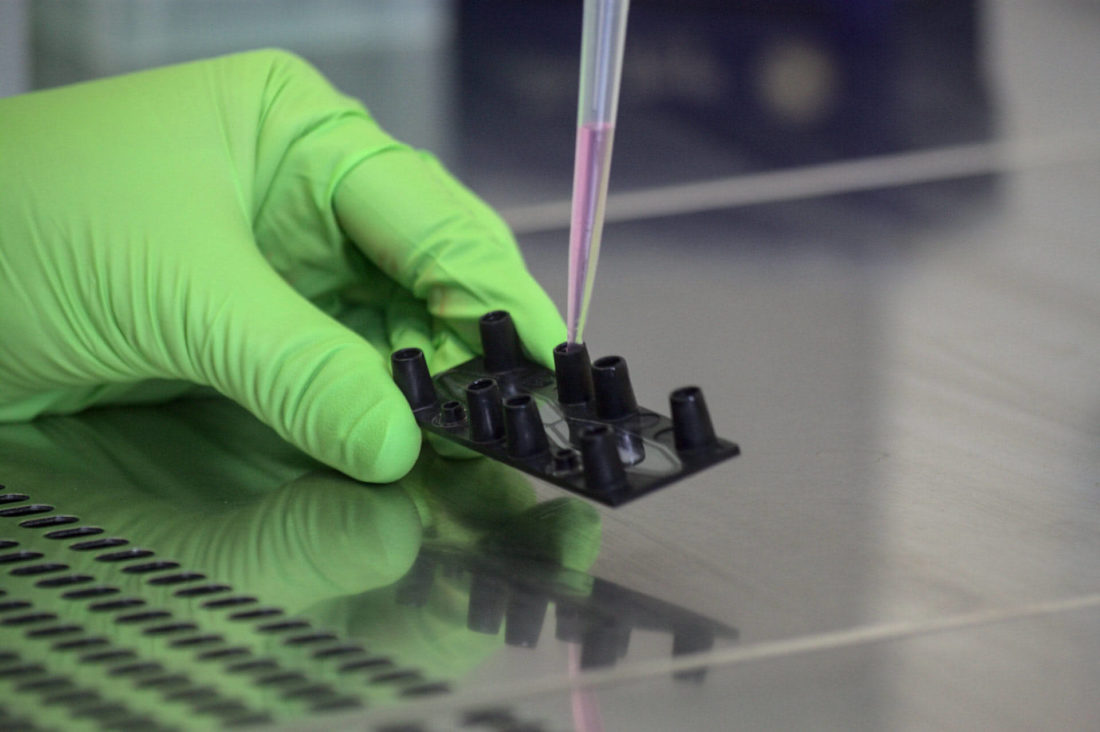International Day for the Abolition of Animal Testing
The compatibility of ingredients on animals is still being tested in the pharmaceutical and food industries. Because of the World Day for the Abolition of Animal Testing, we present the organ-on-chip technology developed by Dynamic42. This technology with biotech chips and human organ models offers an ethically justifiable alternative to the previous methods.
The most common test subjects are small rodents, such as rats or mice. In feeding experiments, which usually last 90 days, the rodents take up the substances via feed or water. In some cases, the test substances are pumped directly into the stomach, which likely causes pain in the animals. The results of these experiments are questionable since the reactions and environmental influences of the animals often do not match with those of humans. High bureaucratic hurdles and a cost-intensive infrastructure for animal husbandry also make the experiments economically unattractive.
Organ-on-chip as an animal-friendly alternative
The Organ-on-chip technology offers a time- and cost-efficient alternative to reduce or completely replace substance testing on animals in the future.
In the organ-on-chip process, tissue from human organs is reproduced in miniature format and cultivated on microfluidic chip systems. The chip systems are used, for example for the early testing of drugs or food. The organ-on-chip technology is becoming increasingly important because it convinces with:
- a much more efficient and precise data analysis of human organ models compared to animal experiments
- a high ability to standardize the chip or organ-models, which are not exposed to external environmental fluctuations
- a microscopic and thus faster, less complicated, and more accurate observation of the tissue cells
Our Vision
By researching and improving the organ-on-chip technology, Dynamic42 wants to contribute to making new drugs or food ingredients safer and to bringing them to market maturity in a resource-saving and ethical manner. Therefore, Dynamic42 is focusing its research on innovative test systems and the technological development of the biotech chips. These provide the basis for the organ-on-chip technology because the human organ models are created on the chips. The increasing interest in such solutions as well as many requests to use organ-on-chip models in the context of other research questions shows that a reduction in animal experiments is already possible and is taking place.
Picture: Dynamic42
More interesting articles:
Blog
Organ-on-chip applications by organ type – what has been done?
This blog lists examples of organ-on-chip models by organ type that have been used in the past, providing the respective literature for your reference.
Read MoreBlog
Exploring infectious disease dynamics through organ-on-chip technology
This blog explores established infection models using our organ-on-chip technology and their implications for scientific research.
Read MoreBlog
Immunocompetent Organ Models – the Future of Biomedical Research
One crucial factor that plays a pivotal role in the success of organ-on-cip models is immunocompetence. In this blog post, we delve into the significance of immunocompetence in organ-on-chip models and how it opens new avenues for advancing medical research.
Read More

